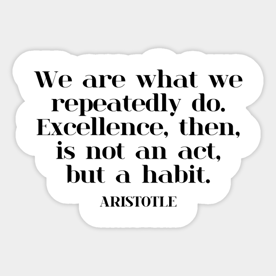 One of the reasons Strategic Discipline works well for our customers is the habit for leadership reflection in each Quarterly and Annual planning meeting where we review
One of the reasons Strategic Discipline works well for our customers is the habit for leadership reflection in each Quarterly and Annual planning meeting where we review
- What did we learn?
- What can we work on?
The time invested in review and reflection always isolates key takeaways on how the team and business can advance to do better in the future.
Scaling Up and Metronomics best practices include Leadership Team meeting rhythms; frequent daily, weekly, monthly, quarterly, and annual meetings to establish a cadence of accountability. Meeting rhythms offer keen insights through Pattern Recognition.
James Clear, Atomic Habits, sees danger in habits, “The upside of habits is that we can do things without thinking. The downside of habits is that you get used to doing things a certain way and stop paying attention to little errors. Habits are necessary, but not sufficient for mastery. What you need is a combination of automatic habits and deliberate practice.”
Habits + Deliberate Practice = Mastery
To become great, certain skills need to become automatic. As a young boy attempting to improve my basketball skill, I focused on learning to dribble without thinking. In this way, I learned how to master layups and even hook shots with my non-dominant hand.
.png?width=331&name=Mastering%20One%20Habit%20(Atomic%20Habits).png) Clear notes, “Surgeons need to repeat the first incision so many times that they could do it with their eyes closed so that they can focus on the hundreds of variables that arise during surgery. But after one habit has been mastered, you have to return to the effortful part of the work and begin building the next habit.”
Clear notes, “Surgeons need to repeat the first incision so many times that they could do it with their eyes closed so that they can focus on the hundreds of variables that arise during surgery. But after one habit has been mastered, you have to return to the effortful part of the work and begin building the next habit.”
Mastery is the process of.png?width=330&name=Mastering%20a%20Field%20(Atomic%20Habits).png) narrowing your focus to a tiny element of success, repeating it until you have internalized the skill. You use this new habit as the foundation to advance to the next frontier of your development.
narrowing your focus to a tiny element of success, repeating it until you have internalized the skill. You use this new habit as the foundation to advance to the next frontier of your development.
See the two figures at the right: The process of mastery requires you progressively layer improvements on top of one another. Each habit builds upon the last until a new level of performance is reached and a higher range of skills has been internalized
Reflection & Review
Clear shares, “Although habits are powerful, what you need is a way to remain conscious of your performance over time, so you can continue to refine and improve. It is precisely at the moment when you begin to feel like you have mastered a skill—right when things are starting to feel automatic, and you are becoming comfortable—that you must avoid slipping into the trap of complacency.”
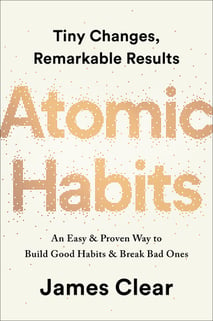 What’s the solution? Establish a system for reflection and review. This is exactly why we do this exercise in Scaling Up/Metronomics quarterly and annually.
What’s the solution? Establish a system for reflection and review. This is exactly why we do this exercise in Scaling Up/Metronomics quarterly and annually.
Sports Example
In 1986 the Los Angeles Lakers were touted as one of the most talented teams ever assembled. They started the season 29-5 yet ended up suffering a season-ending defeat in the Western Conference Finals. As Clear describes it, “The ‘best team in the history of basketball’ didn’t even play for the NBA championship.”
To avoid the outcome the next season, coach Pat Riley created a system to help make his Laker team play up to their potential each night. Called Career Best Effort program or CBE, it followed a similar pattern to the British Cycling team we shared in Measuring ROI - Create Marginal Gains. This Lakers team sought peak performance by getting slightly better each day.
After determining a player’s baseline level of performance, Riley added a key step. He asked each player to “improve their output by at least 1 percent over the course of the season. If they succeeded, it would be a CBE, or Career Best Effort.”
The CBE was not just about points or statistics. It was giving your “best effort spiritually and mentally and physically.” Players got credit for “allowing an opponent to run into you when you know that a foul will be called against him, diving for loose balls, going after rebounds whether you are likely to get them or not, helping a teammate when the player he’s guarding has surged past him, and other ‘unsung hero’ deeds.”
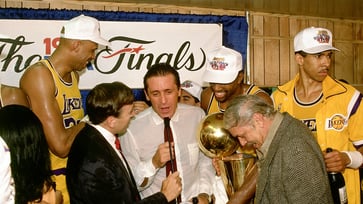 The CBE program is a prime example of the power of reflection and review. The Lakers were already talented. CBE helped them get the most out of what they had and made sure their habits improved rather than declined.
The CBE program is a prime example of the power of reflection and review. The Lakers were already talented. CBE helped them get the most out of what they had and made sure their habits improved rather than declined.
The Lakers rolled out CBE in October 1986. Eight months later, they were NBA champions. The following year, Riley led his team to another title as the Lakers became the first team in twenty years to win back-to-back NBA championships.
Reflection and review enable the long-term improvement of all habits. It makes you aware of your mistakes and helps you consider possible paths for improvement. Without reflection, we can make excuses, create rationalizations, and lie to ourselves.
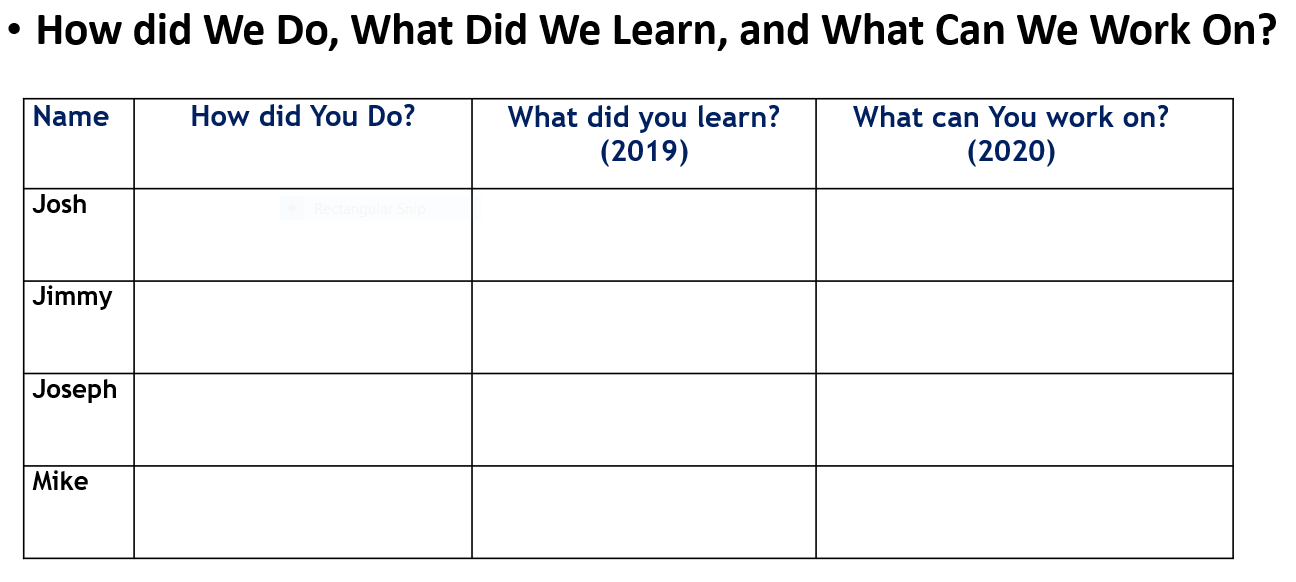 Peer presence in leadership meetings makes us more likely to review ourselves honestly.
Peer presence in leadership meetings makes us more likely to review ourselves honestly.
LOOK IN THE MIRROR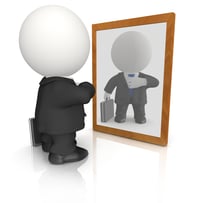
Never reviewing your habits is like never looking in the mirror.
You aren’t aware of easily fixable flaws—a spot on your shirt, a bit of food in your teeth. There is too little feedback.
Reflection and review offer an ideal time to revisit one of the most important aspects of behavior change: identity.
To create an environment where everyone is inspired to give their best, contact Positioning Systems today to schedule a free exploratory meeting.
Growth demands Strategic Discipline.
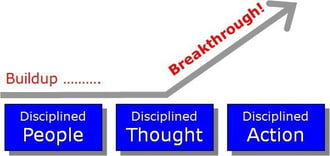 Building an enduring great organization requires disciplined people, disciplined thought, disciplined action, superior results, producing a distinctive impact in the world.
Building an enduring great organization requires disciplined people, disciplined thought, disciplined action, superior results, producing a distinctive impact in the world.
Discipline sustains momentum, over a long period of time, laying the foundations for lasting endurance.
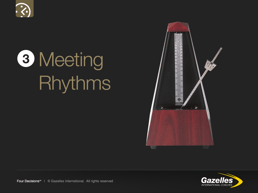 A winning habit starts with 3 Strategic Disciplines: Priority, Metrics, and Meeting Rhythms. Forecasting, accountability, individual, and team performance improve dramatically.
A winning habit starts with 3 Strategic Disciplines: Priority, Metrics, and Meeting Rhythms. Forecasting, accountability, individual, and team performance improve dramatically.
Meeting Rhythms achieve a disciplined focus on performance metrics to drive growth.
Let Positioning Systems help your business achieve these outcomes on the Four most Important Decisions your business faces:
|
DECISION |
RESULT/OUTCOME |
|
PEOPLE |
|
|
STRATEGY |
|
|
EXECUTION |
|
|
CASH |
|
Positioning Systems helps mid-sized ($5M - $250M+) business Scale-UP. We align your business to focus on Your One Thing! Contact dwick@positioningsystems.com to Scale Up your business! Take our Four Decisions Needs Assessment to discover how your business measures against other Scaled Up companies. We’ll contact you.
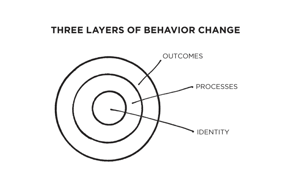 NEXT BLOG –3 Layers of Behavior Change - Change your Identity
NEXT BLOG –3 Layers of Behavior Change - Change your Identity
There are three layers of behavior change: a change in your outcomes, your processes, or your identity. Change your Identity is Critical.






.jpeg?width=150&height=135&name=Hand%20with%20marker%20writing%20the%20question%20Whats%20Next_%20(1).jpeg)

